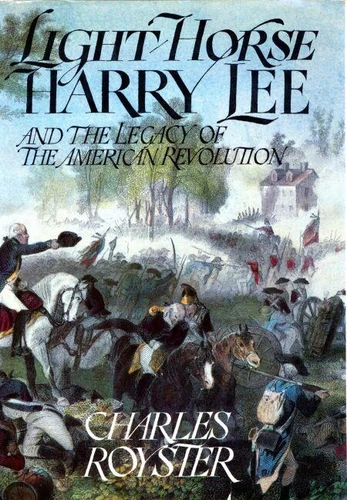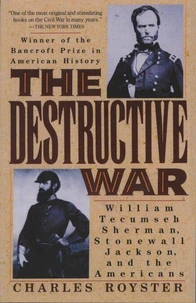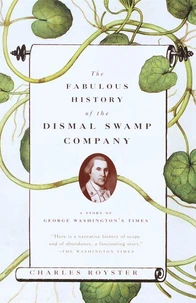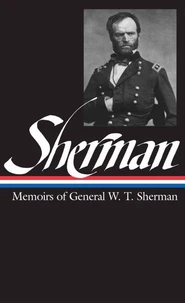Light - Horse Harry Lee
Par :Formats :
Disponible dans votre compte client Decitre ou Furet du Nord dès validation de votre commande. Le format ePub protégé est :
- Compatible avec une lecture sur My Vivlio (smartphone, tablette, ordinateur)
- Compatible avec une lecture sur liseuses Vivlio
- Pour les liseuses autres que Vivlio, vous devez utiliser le logiciel Adobe Digital Edition. Non compatible avec la lecture sur les liseuses Kindle, Remarkable et Sony
- Non compatible avec un achat hors France métropolitaine
 , qui est-ce ?
, qui est-ce ?Notre partenaire de plateforme de lecture numérique où vous retrouverez l'ensemble de vos ebooks gratuitement
Pour en savoir plus sur nos ebooks, consultez notre aide en ligne ici
- Nombre de pages304
- FormatePub
- ISBN978-0-307-82892-7
- EAN9780307828927
- Date de parution21/08/2013
- Protection num.Adobe DRM
- Taille5 Mo
- Infos supplémentairesepub
- ÉditeurKnopf
Résumé
In Light Horse Harry Lee, Charles Royster tells the story of a man whose career embodies the visionary promises that inspired the American Revolution, as well as the inability of the revolutionary generation to put all its ideals into practice. The man is Henry Lee-soldier (nicknamed "Light-Horse Harry Lee"), statesmen, landowner, historian of the young republic, member of one of the oldest and most eminent families of Virginia-who throughout his life endeavored to realize his dream of a free and prosperous America.
Brilliantly examining Lee's ambitions and achievements, Mr. Royster makes us see how, both during the war and afterward, Lee continually risked himself in the service of his vision and how again and again he failed to win the victories he sought. He shows us Lee as a young officer in the Revolution, fighting valorously and skillfully, earning renown as a patriot and a military genius-but leaving the Continental Army before the war's end, sickened by the violence of battle and disheartened by his helplessness to mitigate it.
After the war, we see Lee determined to play a central role in the new nation's peaceful growth-serving in Congress and as governor of Virginia, promoting expansion and development through his own private business ventures. And we watch as Lee's desperate pursuit of wealth and order for America ends tragically: in his political defeat, bankruptcy, and exile from the land he fought to free. Tracing Lee's struggles and reverses in his efforts to implement the promises of the Revolution-in his defense of the union, his opposition to Jeffersonian Republicans, his investments in land, his repeated warnings against war-Mr.
Royster shows how, in extreme form, Lee exemplified in his strivings the public aspirations of America's most politically creative era, as well as his generations collective failure to attain its vision of national grandeur and individual happiness. And it is this failure and the resultant disappointment, Mr. Royster argues, that in large part opened the way to disagreements over the nature of the Union, culminating, finally, in the Civil War-in which the South was led by Light-Horse Harry Lee's son, Robert E.
Lee.
Brilliantly examining Lee's ambitions and achievements, Mr. Royster makes us see how, both during the war and afterward, Lee continually risked himself in the service of his vision and how again and again he failed to win the victories he sought. He shows us Lee as a young officer in the Revolution, fighting valorously and skillfully, earning renown as a patriot and a military genius-but leaving the Continental Army before the war's end, sickened by the violence of battle and disheartened by his helplessness to mitigate it.
After the war, we see Lee determined to play a central role in the new nation's peaceful growth-serving in Congress and as governor of Virginia, promoting expansion and development through his own private business ventures. And we watch as Lee's desperate pursuit of wealth and order for America ends tragically: in his political defeat, bankruptcy, and exile from the land he fought to free. Tracing Lee's struggles and reverses in his efforts to implement the promises of the Revolution-in his defense of the union, his opposition to Jeffersonian Republicans, his investments in land, his repeated warnings against war-Mr.
Royster shows how, in extreme form, Lee exemplified in his strivings the public aspirations of America's most politically creative era, as well as his generations collective failure to attain its vision of national grandeur and individual happiness. And it is this failure and the resultant disappointment, Mr. Royster argues, that in large part opened the way to disagreements over the nature of the Union, culminating, finally, in the Civil War-in which the South was led by Light-Horse Harry Lee's son, Robert E.
Lee.
In Light Horse Harry Lee, Charles Royster tells the story of a man whose career embodies the visionary promises that inspired the American Revolution, as well as the inability of the revolutionary generation to put all its ideals into practice. The man is Henry Lee-soldier (nicknamed "Light-Horse Harry Lee"), statesmen, landowner, historian of the young republic, member of one of the oldest and most eminent families of Virginia-who throughout his life endeavored to realize his dream of a free and prosperous America.
Brilliantly examining Lee's ambitions and achievements, Mr. Royster makes us see how, both during the war and afterward, Lee continually risked himself in the service of his vision and how again and again he failed to win the victories he sought. He shows us Lee as a young officer in the Revolution, fighting valorously and skillfully, earning renown as a patriot and a military genius-but leaving the Continental Army before the war's end, sickened by the violence of battle and disheartened by his helplessness to mitigate it.
After the war, we see Lee determined to play a central role in the new nation's peaceful growth-serving in Congress and as governor of Virginia, promoting expansion and development through his own private business ventures. And we watch as Lee's desperate pursuit of wealth and order for America ends tragically: in his political defeat, bankruptcy, and exile from the land he fought to free. Tracing Lee's struggles and reverses in his efforts to implement the promises of the Revolution-in his defense of the union, his opposition to Jeffersonian Republicans, his investments in land, his repeated warnings against war-Mr.
Royster shows how, in extreme form, Lee exemplified in his strivings the public aspirations of America's most politically creative era, as well as his generations collective failure to attain its vision of national grandeur and individual happiness. And it is this failure and the resultant disappointment, Mr. Royster argues, that in large part opened the way to disagreements over the nature of the Union, culminating, finally, in the Civil War-in which the South was led by Light-Horse Harry Lee's son, Robert E.
Lee.
Brilliantly examining Lee's ambitions and achievements, Mr. Royster makes us see how, both during the war and afterward, Lee continually risked himself in the service of his vision and how again and again he failed to win the victories he sought. He shows us Lee as a young officer in the Revolution, fighting valorously and skillfully, earning renown as a patriot and a military genius-but leaving the Continental Army before the war's end, sickened by the violence of battle and disheartened by his helplessness to mitigate it.
After the war, we see Lee determined to play a central role in the new nation's peaceful growth-serving in Congress and as governor of Virginia, promoting expansion and development through his own private business ventures. And we watch as Lee's desperate pursuit of wealth and order for America ends tragically: in his political defeat, bankruptcy, and exile from the land he fought to free. Tracing Lee's struggles and reverses in his efforts to implement the promises of the Revolution-in his defense of the union, his opposition to Jeffersonian Republicans, his investments in land, his repeated warnings against war-Mr.
Royster shows how, in extreme form, Lee exemplified in his strivings the public aspirations of America's most politically creative era, as well as his generations collective failure to attain its vision of national grandeur and individual happiness. And it is this failure and the resultant disappointment, Mr. Royster argues, that in large part opened the way to disagreements over the nature of the Union, culminating, finally, in the Civil War-in which the South was led by Light-Horse Harry Lee's son, Robert E.
Lee.






